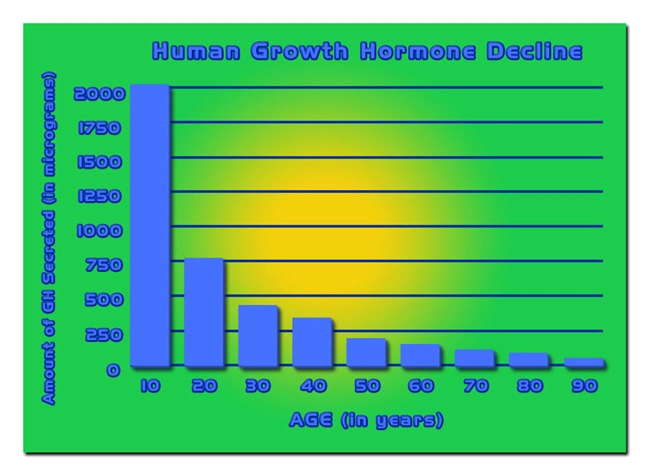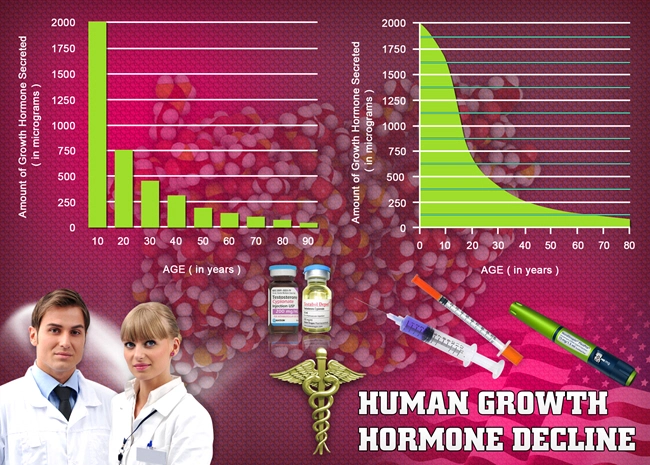
Video Link: https://vimeo.com/252590966
Video Download: Click Here To Download Video
Video Stream: Click Here To Stream Video
Sugar Addiction: The UnSweet Truth
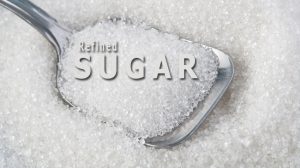 Our clinics specialize in Hormone Replacement Therapy. We offer Human Growth Hormone (HGH) Replacement Therapy; Testosterone Replacement Therapy (TRT); and Sermorelin Therapy.
Our clinics specialize in Hormone Replacement Therapy. We offer Human Growth Hormone (HGH) Replacement Therapy; Testosterone Replacement Therapy (TRT); and Sermorelin Therapy.
But we also stress this crucial piece of the equation: You can enhance the effects of hormone therapy or weaken these effects solely by what you put into your body or what you don't consume. And this is doubly important when it comes to sugar.
A nutritionist once complained that there was a depressing saying she heard all-too-often from her clients: “I just love my donuts and cookies.” What is the problem with that saying? Your donuts and cookies don’t love you back!
As research continues into the health effects of sugar, a grim, stark fact is becoming more and more apparent: sugar is poison and wreaks havoc on your body in so many ways. Today we are more addicted to sugar than at any time in the past.
Want proof? Check out these numbers:
- In 1700, sugar consumption averaged approximately 4 pounds per year
- In 1800, the annual ingestion of sugar had more than quadrupled to 18 pounds per year
- In 1900, the climb in the rate of sugar intake had skyrocketed to 90 pounds annually
- In 2012, more than half of all Americans wolfed down an astonishing 180 pounds of sugar yearly!
So why does that matter? Here’s why: In 1890, as few as three people per 100,000 suffered from diabetes. In 2012, nearly 8,000 out of 100,000 were diagnosed with the killer affliction of diabetes. Indeed, it would be extremely challenging to argue that sugar does not play a role in this continuing health crisis -- a huge role.
Our Sugar Addiction
Sugar has been targeted at all of us, especially our kids. A grim statistic: since 1900, our children are swallowing around TEN TIMES more sugar now than a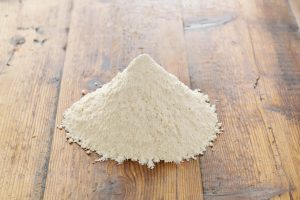 little over 100 years ago. Worse, this is often in the form of a Frankenstein-like creation called high fructose corn syrup (HFCS).
little over 100 years ago. Worse, this is often in the form of a Frankenstein-like creation called high fructose corn syrup (HFCS).
Why is this a problem? What’s the big deal about high fructose corn syrup? Simply this: the highly addictive HFCS contains both fructose and glucose, but unlike regular sugar, they are not bound together. The result is the body does not digest HFCS, and it goes directly to the liver.
There it is turned into fat via a combination of Very-Low-Density Lipoprotein (VLDL) cholesterol and triglycerides. Fructose has an insidious ability to fool the body into weight gain by tricking our metabolism into switching off our appetite-control system by not stimulating our production of insulin.
As a result, the “hunger hormone” ghrelin and the “satiety hormone” leptin both run amok. This combination is a one-two punch. Excess ghrelin causes us to be ravenously hungry, while a lack of leptin makes a bad situation worse by delaying the feeling of being full long past the time when we would typically stop eating.
Continuing to gorge on HFCS can result in developing chronic insulin resistance, which over time can lead to diabetes. HFCS consumed in copious amounts can also suppress the immune system.
But HFCS is Not the Only Problem
It seems simple. Read labels, avoid HFCS, and you’re in the clear, right? Regrettably, no, it’s not that simple. The adverse health consequences of HFCS can be extended to all processed sugars. More and more research continues to beat the same drum: sugar is the culprit for a wide array of health problems such as:
- Diabetes
- Inflammation
- Weight-gain that all-too-often leads to obesity
- A compromised immune system function
- High blood pressure
- Increased risk of heart attack
- Liver damage
- Decreased levels of HDL cholesterol (“the good kind”) and increased levels of LDL cholesterol (“the bad kind”)
- Skyrocketing triglyceride levels
- Increased levels of uric acid, resulting in an increased risk of liver and kidney damage
- The worst is saved for last. Some research points to a possible link between sugar and the proliferation of cancer cells. To be fair, not all researchers share this opinion. But virtually all scientists and medical professionals agree that sugar consumption should be moderate and be restricted to complex, high-quality sources of unprocessed foods as close as possible to their natural forms.
Always keep in mind that sugar is addicting...for some, as addicting as the most potent street drugs or pharmaceutical prescription drugs. In a 2007 study conducted by Dr. Serge Ahmed from The University of Bordeaux in France using rats as subjects, the rats preferred the intense sweetness of sugar to the pleasurable rush of cocaine.
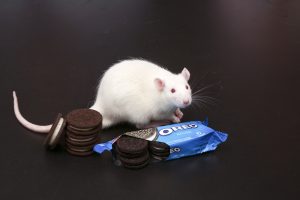
How in the world could this be? The answer to this is that sugar makes dopamine, the brain’s “feel-good” chemical. In fact, sugar produces so much dopamine that the brain gets lazy and slows down or stops making the substance.
If sugar consumption halts, the brain will go into withdrawal until it regroups and begins to manufacture dopamine on its own again. Scary stuff. Hopefully, you are now aware of the need to get your sugar intake under tight control.
To help you achieve that, and cut through the confusion about the seemingly endless variations of sugars and sweeteners, here is a list of terms that you need to know:
- Saccharide = sugar
- Glucose (aka “dextrose” or “grape sugar”), galactose (“milk sugar”), and fructose (“fruit sugar”) are all “monosaccharides” (i.e., single sugar molecules), known as “simple sugars.” The main difference is how your body metabolizes them.
- Glucose is a required fuel source. Every cell in your body uses glucose for energy.
- High amounts of fructose are incredibly harmful to the body if it’s not burned instantly for energy. If not, it travels directly to the liver where it’s converted to triglycerides (fats). Excess triglycerides increase insulin resistance (and insulin production), thus indirectly contributing to diabetes.
- Simple sugars can combine to form more complex sugars, like sucrose (“table sugar”) which is a “disaccharide” (molecules that contain two monosaccharide residues) comprised of 50% glucose and 50% fructose.
- “Refined” white sugar (pure sucrose) is bathed with a syrup solution and hot water, processed (usually chemically) to remove impurities, decolorized, concentrated, evaporated, re-boiled until crystals form, centrifuged again to separate, then dried. By now, any remnants of “natural goodness” and “nutritional value” have entirely vanished. In fact, white sugar resembles an “industrial product” more than “food.”
- “Brown sugar” is white sugar mixed with molasses.
- “Raw” sugar is not truly raw. It’s been cooked, which kills most of its vitamins and minerals. Even so, it’s probably a bit healthier than refined white sugar since it has a trace of molasses remaining.
- Aspartame or AminoSweet is a neurotoxic rat poison: AVOID AT ALL COSTS!
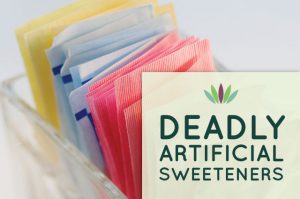
- Splenda (sucralose) is NOT sugar, despite its deceptive marketing slogan, “made from sugar.” It’s a chlorinated artificial sweetener similar to aspartame, although somewhat less harmful.
- Honey is approximately 50% fructose. In its natural (raw and unpasteurized) form, honey has many health benefits. Look to buy honey locally and make sure it is unpasteurized.
- Stevia is an extraordinarily sweet herb derived from the leaf of the South American stevia plant, which is entirely safe (in its natural form). Green stevia is the whole plant, while white stevia is processed and can often contain other ingredients like natural flavors or dextrose, a kind of sugar. 100% green stevia in its natural state is clearly your best choice.
- Agave nectar comes from the agave plant, which is a cactus. In spite of its natural-sounding name, it is anything but natural. Agave is HIGHLY processed, resulting in the end product not even remotely resembling the original agave plant. Also, agave is approximately 80% fructose (much higher than honey and maple syrup).
- HFCS (high fructose corn syrup) is 55% fructose and 45% glucose. It is mostly genetically modified. Re-read the information provided above, and SHUN THIS FRANKENSTEIN!
- Rapadura is the pure juice extracted from the sugar cane, then evaporated over low heat, while being stirred with paddles, then ground to a grainy sugar
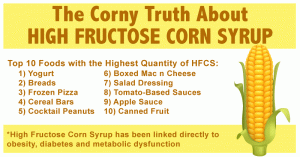 . It has not been cooked at high temperatures or spun to change it into crystals, and the molasses is maintained in the sugar. “Sucanat” is the USA trade name for Rapadura.
. It has not been cooked at high temperatures or spun to change it into crystals, and the molasses is maintained in the sugar. “Sucanat” is the USA trade name for Rapadura. - Coconut sugar is made from the sweet watery sap dripping from the cut flower buds of the coconut palm. It has a low glycemic index (GI) and is rich in amino acids. It is typically less than 10% fructose, with sucrose being the primary component.
- Xylitol is a sweetener known as a “sugar alcohol” (or polyol). Sugar alcohols are neither sugars nor alcohols. They are carbohydrates (with structures that happen to resemble sugar and alcohol). Xylitol is extracted from corn or birch cellulose. Unlike sugar, Xylitol is slowly absorbed, does not cause a rapid blood sugar increase, and does not require an immediate insulin response from the body to be metabolized. Moreover, numerous studies have concluded that it helps prevent dental cavities, ear infections, and possibly gum disease since Xylitol is anti-bacterial. However, Xylitol does have some potential side effects (most notably gastrointestinal distress) and should be used with caution.
The final takeaway is this. There is no need to avoid sugar entirely unless you are under a doctor’s care for sugar-related health problems. However, moderation is the key. Complex carbohydrates are foods that consist of three or more sugars and are loaded with fiber.
Simple carbohydrates are made up of only one or two sugars and are high on the glycemic index, which results in an unhealthy blood sugar spike.  Examples of complex carbohydrates are whole grains, lentils, fresh vegetables, and fruits.
Examples of complex carbohydrates are whole grains, lentils, fresh vegetables, and fruits.
Strive to make these your primary energy source, not the simple sugars that are found in sodas, cakes, pies, ice cream, and other sugar-laden foods.
Growth hormone and reducing sugar = a gigantic boost in good health and longevity!
Contact us for a FREE, no-obligation discussion concerning the benefits of growth hormone restoration therapy.
References
THE UNSWEETENED TRUTH: A SUGAR FREE DIET CAN SAVE YOUR LIFE
The Unsweetened Truth about Sugar Addiction
Contact Us Today For A Free Consultation
Dear Patient,
Once you have completing the above contact form, for security purposes and confirmation, please confirm your information by calling us.
Please call now: 1-800-380-5339.
Welcoming You To Our Clinic, Professor Tom Henderson.

- Obese Patients Have a Higher COVID-19 Mortality Risk Than the General Public [Last Updated On: January 24th, 2025] [Originally Added On: August 21st, 2020]
- The Health and Hormone Balancing Qualities of Broccoli [Last Updated On: August 11th, 2025] [Originally Added On: August 27th, 2020]
- What to eat to boost testosterone [Last Updated On: September 14th, 2025] [Originally Added On: December 14th, 2020]
- Breaking a Weight Loss Plateau: How to Reduce Body Fat When Nothing Seems to be Working [Last Updated On: January 20th, 2025] [Originally Added On: February 16th, 2021]
- The Top 25 Most Nourishing and Sustaining Foods to Add to Your Diet Today for Increased Longevity [Last Updated On: January 16th, 2025] [Originally Added On: February 16th, 2021]
- Fight Inflammation and Osteoporosis with Beets! [Last Updated On: January 14th, 2025] [Originally Added On: February 18th, 2021]
- Break a Weight Loss Plateau with Apple Cider Vinegar [Last Updated On: January 14th, 2025] [Originally Added On: February 20th, 2021]
- An Intriguing Look into How Growth Hormone Production and Fasting are Linked [Last Updated On: January 18th, 2025] [Originally Added On: February 21st, 2021]
- Health Reasons for a Vegan Diet [Last Updated On: October 25th, 2025] [Originally Added On: April 2nd, 2021]
- Leafy Greens are Medicine for Your Gut [Last Updated On: September 27th, 2025] [Originally Added On: April 23rd, 2021]
- All Praise to the Spud -- the Delicious, Health-Giving Potato, That Is [Last Updated On: August 12th, 2025] [Originally Added On: June 1st, 2021]
- 16 Cancer-Causing Foods to Avoid [Last Updated On: May 21st, 2025] [Originally Added On: August 12th, 2021]
- Longevity and Anti-Aging -- The Use of Flax Seed Oil [Last Updated On: May 7th, 2025] [Originally Added On: August 17th, 2021]
- Essential Amino Acids Critical to Health and Hormone Balance [Last Updated On: June 13th, 2025] [Originally Added On: October 6th, 2021]
- Growth Hormone and Calcium [Last Updated On: January 11th, 2025] [Originally Added On: October 16th, 2021]
- Growth Hormone and Coffee [Last Updated On: January 9th, 2025] [Originally Added On: October 19th, 2021]
- The Importance of Protein in Weight Loss and Testosterone Production [Last Updated On: January 19th, 2025] [Originally Added On: October 19th, 2021]
- Testosterone, Growth Hormone, and Sugar. [Last Updated On: January 9th, 2025] [Originally Added On: October 19th, 2021]
- Testosterone, Growth Hormone, and Processed Meat [Last Updated On: January 8th, 2025] [Originally Added On: October 19th, 2021]
- Growth Hormone and Intermittent Fasting [Last Updated On: January 7th, 2025] [Originally Added On: October 19th, 2021]
- Growth Hormone and the Importance of Nutrition [Last Updated On: January 7th, 2025] [Originally Added On: October 20th, 2021]
- Growth Hormone Stops Inflammation! [Last Updated On: January 8th, 2025] [Originally Added On: October 20th, 2021]
- Growth Hormone and Red Meat [Last Updated On: January 5th, 2025] [Originally Added On: October 20th, 2021]
- Boost Growth Hormone with Sleep [Last Updated On: May 20th, 2025] [Originally Added On: October 20th, 2021]
- A Natural Acid Found in Apples Prevents Muscle Loss AKA Sarcopenia [Last Updated On: January 10th, 2025] [Originally Added On: October 20th, 2021]
- Growth Hormone and Organic Foods. [Last Updated On: January 30th, 2026] [Originally Added On: October 21st, 2021]
- Growth Hormone and Acidosis [Last Updated On: January 5th, 2025] [Originally Added On: October 21st, 2021]
- Growth Hormone Food Choices [Last Updated On: January 29th, 2026] [Originally Added On: October 21st, 2021]
- Growth Hormone and Cholesterol: the Surprising Link [Last Updated On: January 6th, 2025] [Originally Added On: October 22nd, 2021]
- Growth Hormone and Weight Loss [Last Updated On: January 31st, 2026] [Originally Added On: October 22nd, 2021]
- Growth Hormone Reduces Inflammation [Last Updated On: January 4th, 2025] [Originally Added On: October 24th, 2021]
- What You Eat Impacts Both Your Sleep AND Your Growth Hormone Production [Last Updated On: January 10th, 2025] [Originally Added On: October 24th, 2021]
- Growth Hormone Lowers Blood Sugar [Last Updated On: January 6th, 2025] [Originally Added On: October 24th, 2021]
- Testosterone and Magnesium [Last Updated On: May 22nd, 2025] [Originally Added On: April 28th, 2022]
- The Beneficial Functions of Brown Fat vs. White Fat [Last Updated On: May 26th, 2025] [Originally Added On: May 3rd, 2022]
- MOTS-c Peptide for Weight Loss and Muscle Building [Last Updated On: June 11th, 2025] [Originally Added On: November 7th, 2022]
- Looking to lose weight? Add this ingredient to meals [Last Updated On: September 24th, 2025] [Originally Added On: December 7th, 2022]
- The many health benefits of black tea [Last Updated On: September 23rd, 2025] [Originally Added On: December 13th, 2022]
- Raw Food Benefits [Last Updated On: September 20th, 2025] [Originally Added On: January 18th, 2023]
- Brain Foods that Work Together with HGH to Improve Mental Sharpness [Last Updated On: February 14th, 2025] [Originally Added On: March 9th, 2024]

